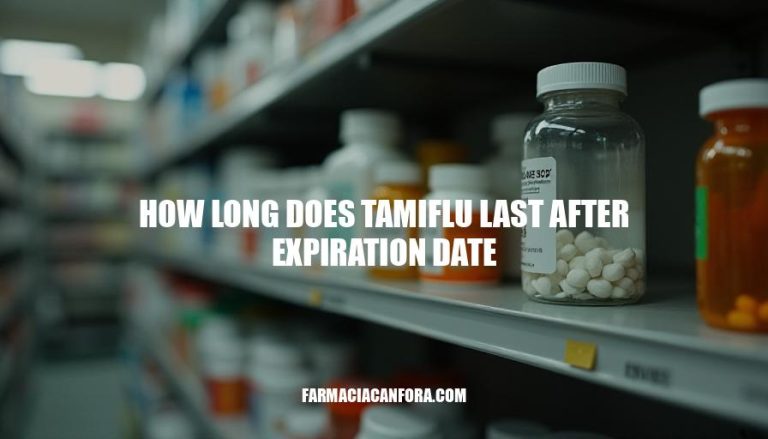


Tamiflu is a medication used to treat and prevent flu viruses. It works by stopping the virus from spreading in your body. But it’s essential to use Tamiflu before its expiration date, as using it after that can be risky.
Chemical stability, storage conditions, and manufacturer guidelines are key factors influencing how long Tamiflu remains effective and safe after its expiration date.
Chemical Stability: Tamiflu’s active ingredient, oseltamivir phosphate, undergoes chemical degradation over time. Studies have shown that expired Tamiflu can retain satisfactory drug potency, meeting USP acceptance criteria. However, the extent of degradation varies, and the medication may lose its effectiveness.
Storage Conditions: Proper storage is crucial for maintaining Tamiflu’s potency.
The medication should be stored at room temperature, between 20°C to 25°C (68°F to 77°F), away from moisture and heat. Improper storage, such as exposure to extreme temperatures or humidity, can accelerate chemical degradation, reducing the medication’s effectiveness.
Manufacturer Guidelines: Manufacturers determine Tamiflu’s expiration date through rigorous testing, ensuring the medication’s safety and efficacy within that period. Beyond this date, the manufacturer cannot guarantee its effectiveness.
While some studies suggest that expired Tamiflu may still be potent, relying on it during critical times, like flu season, could lead to complications due to reduced efficacy.
In summary, the effectiveness and safety of Tamiflu after its expiration date depend on its chemical stability, adherence to proper storage conditions, and manufacturer guidelines. Proper storage and adherence to expiration dates are essential to ensure the medication’s efficacy when needed most.
1www.fortunejournals.com2cdn.fortunejournals.com3wellwisp.com4hellopharmacist.com5www.ema.europa.eu6wellwisp.com
Tamiflu’s viability after its expiration date depends on several factors, including chemical stability, storage conditions, and manufacturer guidelines. While some studies suggest that expired Tamiflu may still be potent, relying on it during critical times like flu season could lead to complications due to reduced efficacy.
Chemical degradation occurs over time, with the extent of degradation varying depending on storage conditions. Proper storage at room temperature (20°C to 25°C or 68°F to 77°F) away from moisture and heat is crucial for maintaining Tamiflu’s potency. Improper storage can accelerate chemical degradation, reducing the medication’s effectiveness.
Manufacturers determine Tamiflu’s expiration date through rigorous testing, ensuring the medication’s safety and efficacy within that period. Beyond this date, the manufacturer cannot guarantee its effectiveness.
It’s essential to consult medical professionals for guidance on using expired Tamiflu, as they can provide personalized advice based on individual circumstances. When in doubt, it’s best to err on the side of caution and discard expired medication to avoid potential complications.